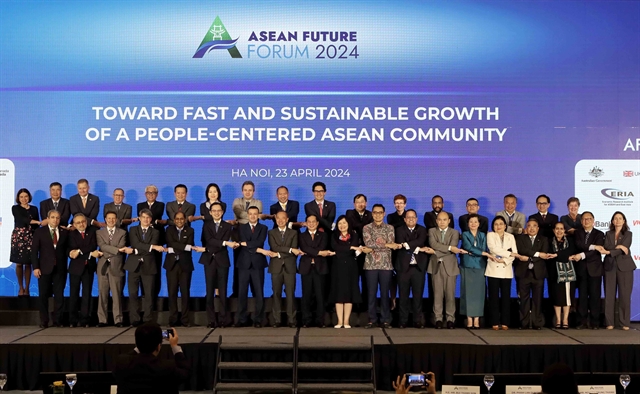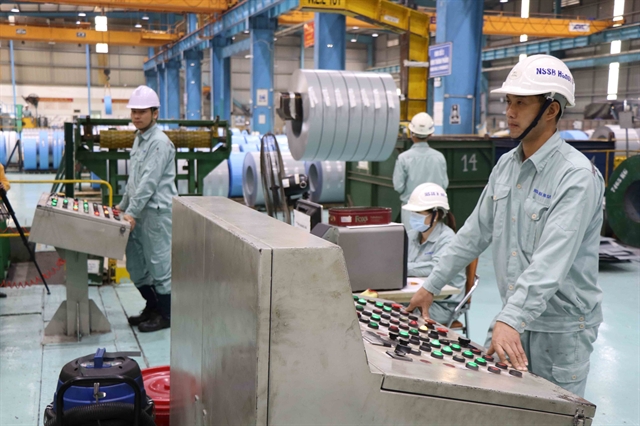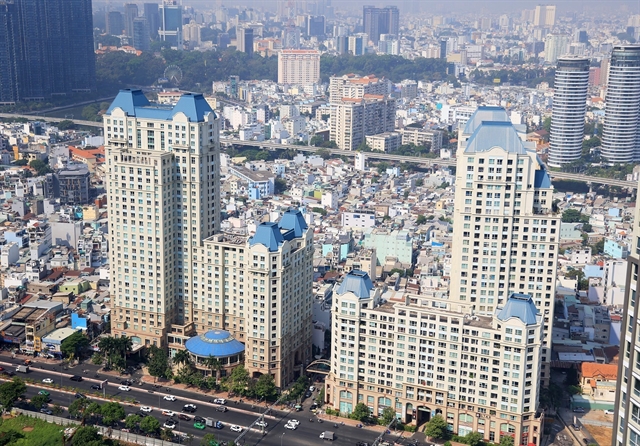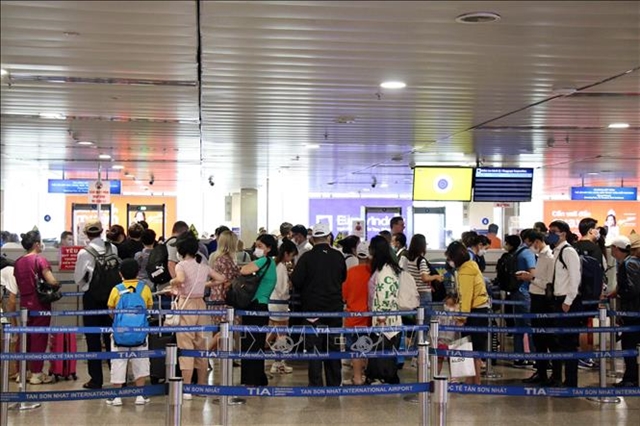 Society
Society

Lê Đình Quảng, deputy director of the Department of Labor Relations, from the VGCL, speaks to the newspaper Kinh tế & Đô thị on how to negotiate for a worker’s wage and Trade Union’s role
Do you think the recent increase to minimum wages has helped improve workers' livelihoods?
The National Wage Council, the Việt Nam General Confederation of Labor (VGCL) and employers have advised the Government on the regional minimum annual wage increase for Vietnamese workers.
This year, the National Wage Council has proposed raising salaries by 5.3 per cent. The pay rise will help improve the livelihoods of millions of workers. However, Vietnamese workers, in general, still face a great number of difficulties even with the proposed increase. A survey conducted by the VGCL found that salaries for many workers were only just enough to cover daily expenses. If they need more money to make life a little easier, they have to work overtime.
According to a survey conducted early this year by the VGCL, most enterprises had strictly followed Government Decree 141 to raise workers’ pay by VNĐ180,000- 250,000 per month. On big national holidays, employers, trade unions and government agencies had also presented gifts to workers. However, salaries still cannot cover monthly expenses, particularly for workers in the leather and footwear, textile and aquaculture sectors.

|
| Workers at the Hà Nội Steel Services Co Ltd in Nam Sơn Commune, Bắc Ninh City, the northern province of Bắc Ninh. Minimum regional wage remains a great concern for many enterprises. — VNA/VNS Photo Thanh Thương |
Some employers have openly stated that they don’t care about the minimum wage set by the Government as they already paid their workers more than the Government’s proposal. How do you respond to that claim?
In reality, the monthly income of most of the workers is higher than the sum proposed by the official minimum pay rise set by the Government. Of course, all employers in Việt Nam should pay social insurance for their employees. According to our survey and reports from the Trade Union, all enterprises have developed monthly salaries for employees according to Government Decree 141.
However, the regional minimum wage increase of 5.3 per cent set by the Government will not be enough to cover the minimum living conditions for the employees and their families. Such an increase will meet just about 94-95 per cent of their minimum requirements.
In 2019, the National Wage Council is expected to negotiate the minimum wage increase for next year. The proposed wage increase should meet the minimum living conditions, but in reality, such an objective has never been met.
During their negotiations, there are always different points of view on how much the minimum pay rise should be. For example, in 2018, the technical team for the National Wage Council suggested the rise should be based on the increase of 48 per cent for food items and 52 per cent for non-food items. Meanwhile, the VGCL proposed an increase of 45 per cent and 55 per cent respectively. The difference between the proposals made by the National Wage Council and the VGCL was about VNĐ300,000. As a result, the VGCL has requested Deputy Prime Minister Vương Đình Huệ to ask agencies to conduct their own surveys and come up with suggestions on how much the upcoming pay rise should be.
I should say the minimum wage is not the only income source for an employee as there are also separate negotiations with employers. The minimum wage is the floor for all parties to negotiate before arriving at their final decision. And of course, in the course of wage negotiations, the Trade Union plays a very important role.
What should employees do in the course of negotiations to secure a better pay rise?
First of all, they should have good knowledge of the labour market, labour force and the wage system. Pay rise negotiations are conducted between the employer and employee.
In my opinion, all employees should know their skill levels and their ability. As we are now living in a market economy, with support from the Trade Union, from the central down to the grassroots level, the employee should get used to pay rise negotiations in order to secure the best deal possible. — VNS








